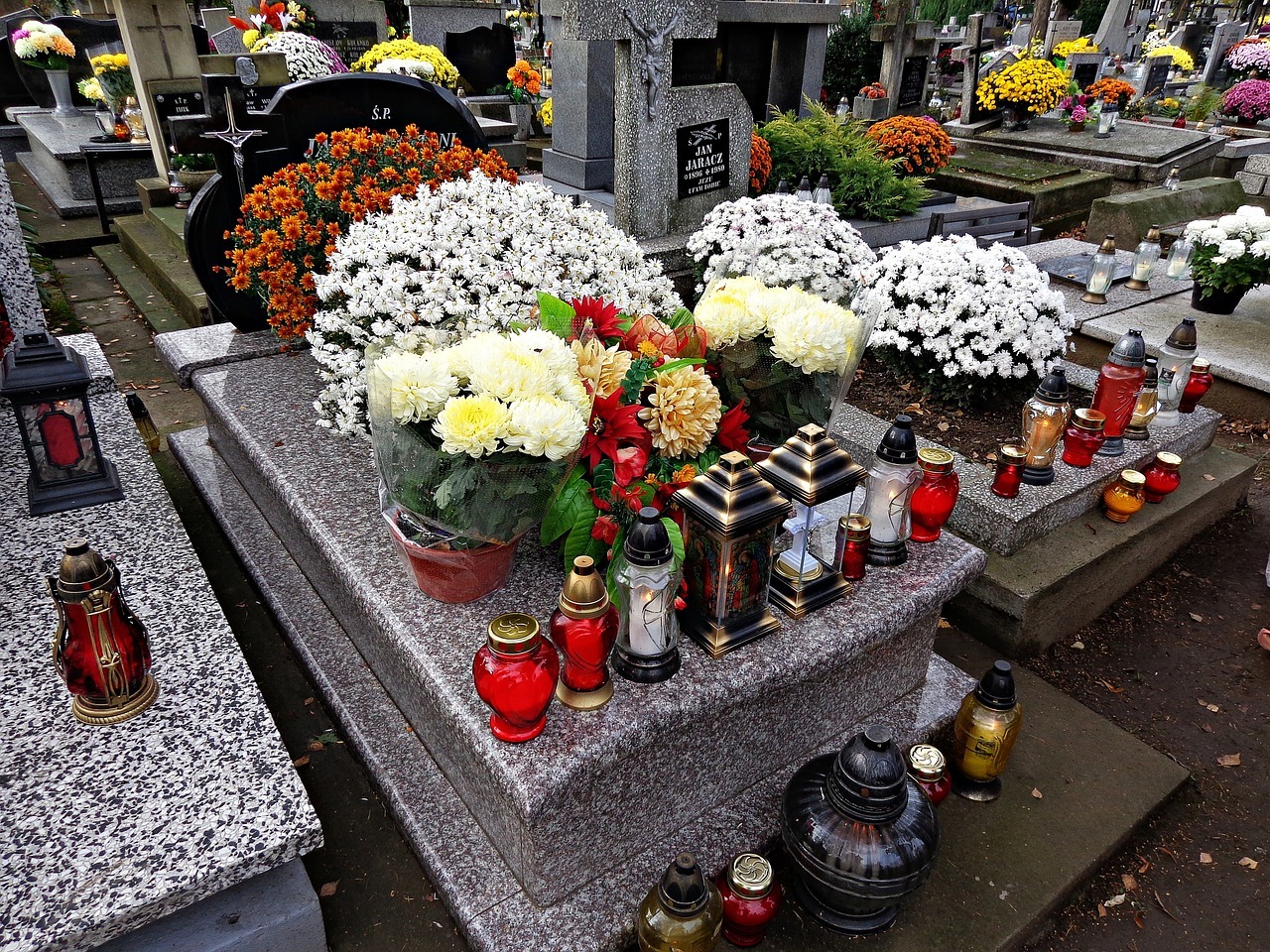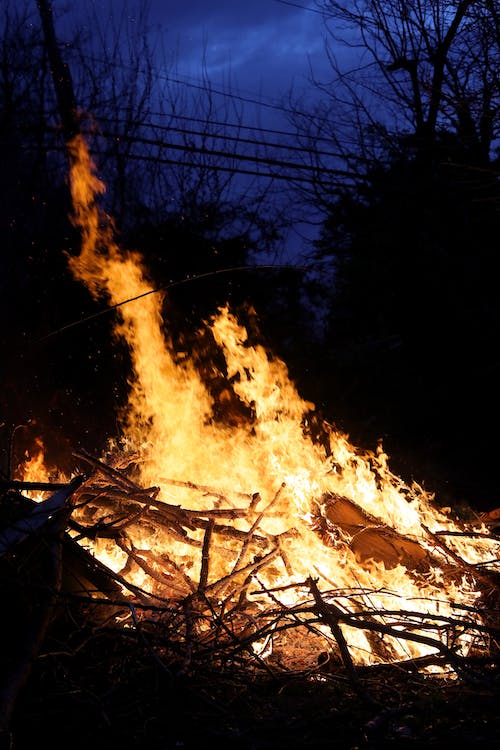Cremation and the following ash scattering ceremonies are becoming more popular, especially in the United States. However, they still aren’t always the best choice for everyone who’s lost a loved one.
Admittedly, such practices have increasingly become a viable choice, especially for those who prefer a less traditional burial platform, and want to avoid exorbitant the costs of traditional burials. Many times, cremation and ash scattering are seen as a more personal way for the bereaved to be connected with their deceased loved ones.
The act of cremation means reducing the body to ashes. This is usually done through fire, although there are now other means which don’t rely on using fossil fuels. Afterward, the ashes are given to the family, who might choose to keep them as a memento, scatter them on water or land, or bury them somewhere.
Dealing with the ashes in any manner could be a way of closure for the family. If they keep them in an urn, the ashes are portable and can travel wherever required. Even with all these advantages, there are several reasons why people might hesitate before going for cremation or not even choose this path at all. We’ll discuss a few of them below:
Religion
One of the main reasons for not choosing cremation may be religion. The Roman Catholic Church, for much of its history, prohibited the cremation of the human remains and ash scattering. Catholicism is one of the earliest established religions, and most of the early Christians followed the Jewish tradition of bodily burial while denouncing the pagans’ practice of cremation.
However, the Catholics’ attitude towards cremation and ash scattering have changed in recent years, although it takes time for most conservative Catholics to adjust to this new tradition. The Church has gradually permitted cremation, but it still holds a preference for burial. Besides, Catholic families still stick to the traditional burial even if it’s more expensive. This is probably because burial is a natural and appropriate way for them to deal with the death of their loved ones.
The Islamic funeral tradition also forbids cremation, as it’s believed that the body feels everything even after death. This means that burning it would be akin to torturing the deceased. The conventional practice in this religion is to wash the body, wrap it in a shroud, and bury it as soon as possible. The remains hence decompose naturally and quickly, as there usually isn’t any form of coffin. In fact, a lot of care is taken not to even jostle the body or do anything which might cause a living person any pain.
Judaism also strictly prohibits cremation, as per orthodox Jewish law. However, mirroring the developments in the modern Western world, at least 30% of Jews in Europe and North America follow the cremation method. The numbers continue to rise, with more and more Jews choosing to go the cremation way due to the reduced cost and practicality.
Environmental Factors
Environmental concerns may also govern the decision to have a cremation and ash scattering, as burial is seen by some as a waste of land and pollutes the environment. However, some argue that cremation and ash scattering may also prove harmful to the environment.
Cremation, for one, uses fossil fuels and releases toxic chemicals into the air. According to one study, cremations form 32% of mercury emissions into the atmosphere. Scattered or buried ashes, according to some other studies, may also be harmful, as high levels of pH and sodium found in the ashes are deemed toxic to plants.
Ethical Factors or Personal Preferences
Many families still prefer traditional burial because it comforts them knowing that their deceased loved ones are laid to rest in an actual place. A grave where they can identify, visit and lay flowers or other offerings is a comfort to those left behind.
Although inurned cremains can also be buried, many families still want the remains to be intact. They prefer knowing the whole body is under the ground, rather than a powdery form.
Whether it is governed by religion or not, many families still believe that respect for the remains means allowing the body to decompose naturally in an appropriate place where they’re buried. They otherwise see cremation and scattering of ashes as an insult to their loved ones, unless specifically requested by the person before he or she dies.
The Statistics
While there are no conclusive studies conducted for this particular field, there have been some surveys done on how many people cremate their loved one. These surveys also collect information about how many families keep the ashes of their deceased at home and how many go for ash scattering ceremonies.
For instance, in California and Washington, it was found that about 20% of the people responding to the survey said that they preserve the ashes at home. About half of the respondents reported keeping the ashes of their parents, while only 15% stated that they held on to the ashes of their spouse.
However, many people reported that they didn’t want to go for the cremation option because they didn’t want to keep the ashes inside their homes. Some said that they experienced increased stress and grief upon seeing the urn of ashes every day, which understandably slowed down the healing process. Some might experience a feeling of closeness to the remains in this manner, but not everyone.
Options for Cremating and Scattering
If you do choose to cremate your loved one, there are several ways to deal with the ashes. There are even some miniature urn keepsakes which you can use to store a tiny amount of the powder. These can then be distributed to family members who may choose to keep them safe or use them as a scattering tube during the ash scattering ceremony. You can check out one option here:
These keepsake urns are more like tiny charms, so one can carry them discreetly wherever they go. They even have a ball chain so you can hang them on your key ring or wear as a necklace. There’s a velvet pouch provides for each one, while the scattering tube is biodegradable for a more environmentally friendly experience.
Having an option like this for your loved ones’ ashes could be a great way to satisfy everyone. This way, everyone can choose whether they want to scatter the ashes or keep them close.
An Irreversible Practice
Another reason why many people might not want to go for cremation and ahs scattering is that burning the body is an irreversible process. When the body is buried, you still have the option of cremating later on if the deceased wished this before their passing away.
However, once you cremate the body, there’s no going back. If you regret the decision later on, there’s nothing to be done. In such cases, some families might experience psychological stress because of this permanent decision.
Decision About Cremation and Ash Scattering
The discussion above has made it clear that there are several reasons for and against the practice of cremation. Even after cremation, there’s the issue of whether to scatter the ashes or keep them in a safe place. These choices could help a family choose the way in which to remember their deceased, but they could also be the cause of a serious argument.
For instance, some family members might be more religious than others. They might argue vehemently against the idea of cremation, wanting a traditional burial. Other members might want to go for cremation for various reasons, believing it to be more practical and perhaps even a better way of gaining closure.
For a family with no particular ties to religion, the issue of burial of cremation might just be a matter of personal preference. Even here, family members and friends might be at odds, with different people vying for different methods. However, it’s recommended that those people who were close to the deceased should sit down and decide on one path to follow as soon as possible.
Conclusion
Choosing to bury or cremate someone you love is always a difficult decision. While religious, social, and cultural factors would certainly play a part, it all comes down to what the deceased would have wished. The family members might find comfort in burial rather than cremation, so there shouldn’t be any judgment if they go for the former option.


